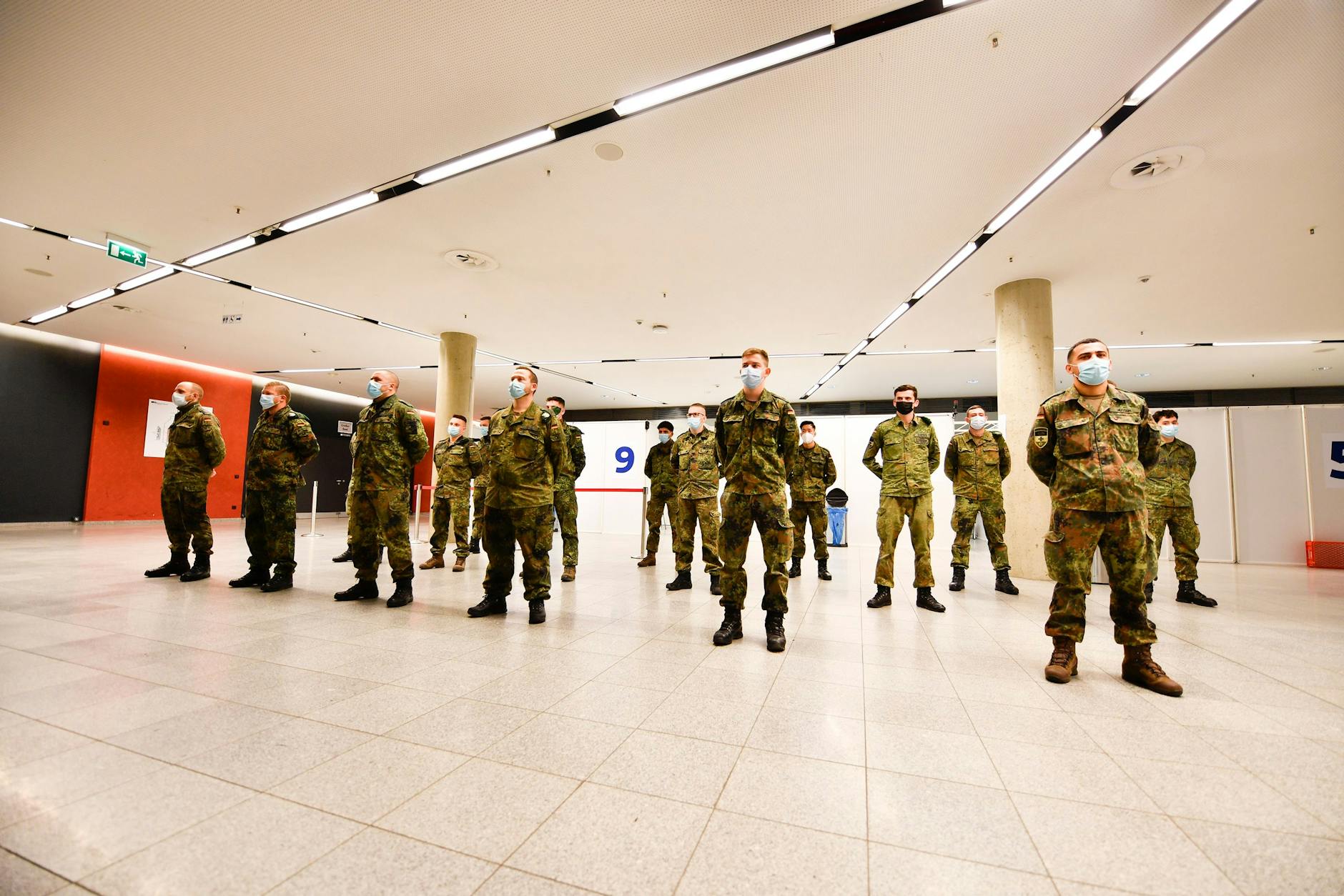How the state destroyed the lives of soldiers because they refused the corona vaccination

The documentary film “StandHaft” shows how the Bundeswehr dealt with critical soldiers during the Corona period – a barely discussed episode of German pandemic policy.
In Berlin, yellow trams in the style of “Uncle Sam” advertise with the slogan “I want you!” – while the Bundeswehr is confronted with dwindling troop numbers, a rising average age and the debate about a return to conscription.
However, another obligation introduced in 2021 received little attention: the obligation to tolerate the coronavirus vaccine. While the Bundeswehr is now considered an indispensable support in geopolitically turbulent times, a fundamental question arises: How does the state actually treat its own soldiers?
Soldiers who refused risked not only disciplinary action but also prison sentences. The documentary " StandHaft " chronicles their fates and poses the question: Was the obligation to tolerate deportation a necessary means of protecting the troops or a bureaucratic constraint that undermined confidence in the Bundeswehr?

"A very unexamined issue," says filmmaker Christiane Müller in an interview with the Berliner Zeitung. Since the late 1990s, Müller has worked in television, primarily for public broadcasters . For her journalistic work, she has been nominated for, among other awards, the Marl Media Prize for Human Rights.
She filmed the travels of the former Minister of Defense and the Inspector General. As a former civilian freelance employee of the Bundeswehr in operational areas such as Afghanistan and Mali, she knows the soldiers' perspective firsthand. In her one-hour film, she explores the central question: What impact has the mandatory COVID-19 vaccination left on the troops?
The film gives affected soldiers, lawyers, and scientists a chance to speak, opening a chapter that had long been hidden. "It was important to me to include as many perspectives as possible," explains Müller. "StandHaft" transports viewers back to the coronavirus era, when lockdowns, masks, and vaccinations dominated everyday life.
Although the general vaccination requirement failed in the Bundestag in April 2022, the facility-specific vaccination requirement for certain professional groups was already introduced in November 2021 – including for the Bundeswehr. The obligation to tolerate the "COVID-19 vaccination" came into force under Defense Minister Annegret Kramp-Karrenbauer. This measure was more than a bureaucratic act; it reflected the political tensions that deeply affected society and the Bundeswehr in particular at the time.
According to the Ministry of Defense, around 96 percent of personnel had received at least two vaccinations by the beginning of 2022. However, some soldiers refused the vaccination – with sometimes serious consequences: Three of them ended up in prison.
"In Germany, soldiers are citizens in uniform and therefore have the same fundamental rights as all other citizens," says Müller. She sees herself as a "bridge builder" and wants to use her documentary to initiate a broader debate on how to come to terms with the coronavirus pandemic.
It eats you up when strangers decide about you
Soldiers who refused the COVID-19 vaccination faced severe disciplinary action. Those who refused the order risked not only their careers but also prison time. A particularly serious example is the case of Jan Reiners, who refused to be vaccinated. "I didn't do anything wrong!" he emphasized.
The soldier, who had served in the Bundeswehr for twelve years, was dishonorably discharged after refusing to serve. "That decision cost me everything," Reiners says in retrospect. "It's also consuming, this powerlessness, knowing that some strangers can make decisions for you."
Resistance in uniform: Imprisonment despite the lifting of the obligation to tolerate detentionAt the time, Reiners hadn't seen any clear scientific evidence for the effectiveness of the coronavirus vaccine: "The product's testing phases weren't yet complete at that point, and the side effects were unclear. You can't force anyone to participate in an experiment," he says.
He remembers well the day he was given the choice: "They said: The corona vaccination is now mandatory. To all soldiers who are not yet vaccinated: Anyone who is not vaccinated by 1 p.m. will be charged with disobeying orders. That carries a three-year prison sentence. Get out of here!" Reiners says.

Although the Bundeswehr's obligation to tolerate coronavirus symptoms was lifted at the end of May 2024 and replaced by a "recommendation," Reiners was still imprisoned in July of that year. He spent three days and two nights in a solitary cell at Lingen Prison in Lower Saxony. "That gives you plenty of time to think," Reiners said. He felt powerless and even hated a state for which he had been willing to die.
In the film, Reiners leafs through his extensive file, which contains numerous documents relating to his refusal of the coronavirus vaccination, and says: "I would do it again." Today, the former sergeant major lives on citizen's income: "My financial hardship will end at some point, and so will my post-traumatic stress disorder."
Sergeant Alexander Bittner was sentenced to a lengthy prison sentence for refusing the coronavirus vaccination. The Ingolstadt District Court had sentenced him to a suspended prison sentence for insubordination. Because he failed to pay a €2,500 fine, he was arrested and handcuffed in September 2024. He served four of the six months he was sentenced to. He was released from an institution in Aichach (Bavaria) only at the beginning of 2025.
"I wouldn't have thought it possible," says AfD politician Gerold Otten in the opening scene of the documentary, which shows a rally in support of Bittner in Aichach. "They wanted to make an example of a completely impeccable soldier," says Otten. Was it worth it for Bittner to sacrifice four months of his life for? "It's hard to say, but four months of my life were wasted for nothing," says Bittner. "I would have liked some kind of political pressure to have been exerted," he adds.
In October 2024, during a government questioning in the Bundestag, then-Health Minister Karl Lauterbach (SPD) denied that soldiers were in prison for refusing vaccination. When asked by a member of parliament whether Lauterbach was advocating for the release of the imprisoned soldiers, the minister replied: "It would be news to me that any soldier is currently in prison for refusing to be vaccinated." This exact fate befell Bittner and Reiners, among others – with sentences that varied depending on the case.

According to lawyer Edgar Siemund, who has represented several soldiers who have resisted the coronavirus vaccination, an order to be vaccinated cannot be issued under any circumstances. "It is an obligation to tolerate against the soldier's will," explains Siemund. Section 17a, Paragraph 2 of the Soldiers Act states: "A soldier must tolerate medical treatment against his will only if it serves 1. the prevention or control of communicable diseases or 2. the determination of his fitness for service or employment." However, the vaccination has never protected against the transmission of the virus.
Furthermore, it is not the aforementioned law that is decisive, explains Siemund , but rather the Bundeswehr's service regulation A-840/8. This regulation regulates the authority of superiors with regard to vaccinations and prophylactic measures. "This service regulation states nothing about giving an order to vaccinate." It merely states that the soldier should be "arranged" to see the vaccinating doctor, and it speaks of "officially ordered vaccination measures." "Not a word about an order, especially not a 'vaccination order,'" Siemund says.
"There are orders a soldier may not follow, and there are orders a soldier does not have to follow," Bittner says. He feared health consequences from the coronavirus vaccination and sees his concerns confirmed by the experiences of other soldiers – several of his comrades were absent for extended periods due to illness after the vaccination.
The documentary also features the voice of vaccine-damaged soldier "Bernd" (anonymous), who developed myocarditis, an inflammation of the heart muscle, after the vaccination. "What was the effect of the vaccination? Was it positive or negative? Did it help or harm?" the soldier asks. With a group as highly vaccinated as the Bundeswehr, answers are easy to find, Bittner believes. More in-depth studies are needed. But a comprehensive analysis is lacking.
The documentary " StandHaft " can be viewed for 5 euros on the official website. Further information about the film is also available there.
Do you have feedback? Write to us! [email protected]
Berliner-zeitung





